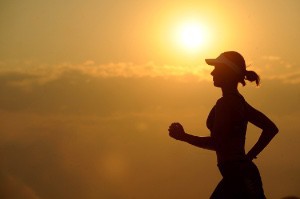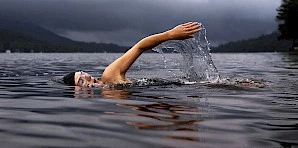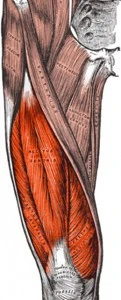Massage Therapy Benefits for Endurance Athletes

Chattanooga has become one of the country’s top outdoor destinations, attracting hikers, trail runners, mountain bikers, rock climbers, and other active outdoor enthusiasts. With over a hundred miles of recreational trails, protected woodlands, and the Tennessee River cutting through its downtown, it’s no wonder Chattanooga has become a premiere city for the Ironman competition. This weekend, athletes will travel to the Scenic City to complete a 2.4 mile swim, 116 mile bike ride, followed by a 26.2 mile run. Finishing this event is an incredible feat of the human body’s strength and endurance, and these athletes must take the time to properly recover after such a race.
Muscle damage is inevitable during a long triathlon. It occurs due to mechanical stress, typically during the eccentric part of muscle contraction when the muscle contracts as it l engthens. Catabolism can occur during long races when the body depletes its preferred sources of energy, glucose and glycogen, and turns to muscle protein for fuel. Oxidative stress also occurs during prolonged workouts; a triathlete’s oxygen intake drastically increases during the race, causing an imbalance in free radical and antioxidant activity. The increase in free radicals overwhelms the body’s antioxidant defenses and causes cellular damage. After pushing the body to its physiological limit, an endurance athlete must implement a smart recovery plan. Along with proper nutrition and rest, massage therapy can be a significant aspect of recovery.
engthens. Catabolism can occur during long races when the body depletes its preferred sources of energy, glucose and glycogen, and turns to muscle protein for fuel. Oxidative stress also occurs during prolonged workouts; a triathlete’s oxygen intake drastically increases during the race, causing an imbalance in free radical and antioxidant activity. The increase in free radicals overwhelms the body’s antioxidant defenses and causes cellular damage. After pushing the body to its physiological limit, an endurance athlete must implement a smart recovery plan. Along with proper nutrition and rest, massage therapy can be a significant aspect of recovery.
One of the most uncomfortable side effects of extreme exercise is delayed-onset muscle soreness (DOMS). This soreness, a result of mechanical and metabolic stresses to muscle tissue, begins 24-48 hours after exercise and can last up to a week in severe cases. Although there is no way to completely eliminate post-exercise muscle soreness, massage therapy can alleviate DOMS symptoms by up to 30%, according to an Australian study.
Researchers in Ontario at McMaster University’s Kinesiology Department conducted an experiment to study the anti-inflammatory effects of massage after exercise. In this study, 11 young men completed exhaustive exercise followed by massage therapy on the quadricep muscles of one leg and no treatment on the other. Muscle biopsies of the participants’ vastus lateralis muscles were taken right after exercise, after 10 min of massage therapy, and after 2.5 hours of recovery. Researchers found that just 10 minutes of massage therapy attenuated inflammation and cellular stress that is caused by exercise-induced muscle trauma.
Another study in Brazil focused on Ironman athletes specifically. The participants included 74 people who experienced anterior thigh pain after completing an Ironman. Massage therapy was administered to the experimental group’s quadricep muscles, while the control group rested in a seated position. Outcomes were measured with a visual analog scale, and they found the experimental group had significantly lower scores than the control group for pain and perceived fatigue. This demonstrates the profound psychological benefit of massage, although more research is needed to confirm a physiological basis for this claim.
Immediately after a race or arduous workout, athletes should rehydrate, refuel, and do a light cool down. A post-event massage should be around 10-15 minutes in duration and encourage recovery by increasing blood flow to tight muscles, reducing soreness, and providing a psychological boost. Wait at least 24 hours after such a workout to get a longer full-body sports massage; this should be relaxing and not include any deep tissue techniques in order to allow the muscles to recover. After a week, athletes can continue with regular maintenance massage therapy to keep the body in balance.
tag @yinyanghouse for questions/comments